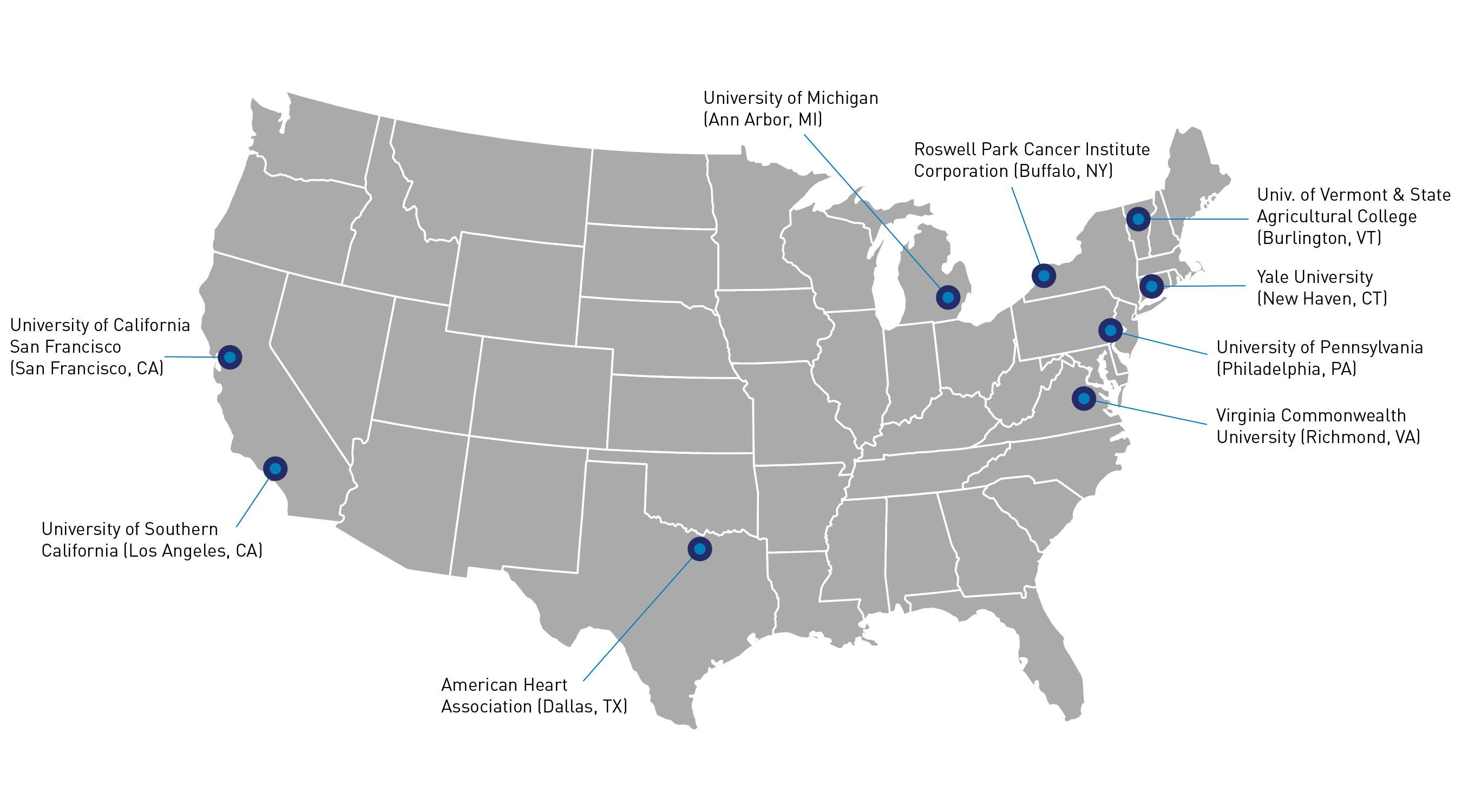Integrated Health, Behavioral and Economic Research on Current and Emerging Tobacco Products
The UCSF Center for Tobacco Control Research and Education is home to one of 9 Tobacco Centers of Regulatory Science (TCORS) supported by the U.S. Food and Drug Administration and the National Institutes of Health. CTCRE Director, Professor Pamela Ling is Principal Investigator for this five-year $20 million project to study the impacts of new and emerging tobacco products, including e-cigarettes and heated tobacco products (HTPs), which heat tobacco without combustion. The new UCSF TCORS research projects, which will also be supported by $1 million in funding from UCSF, will range from the products' impacts on lung and cardiovascular disease to school-age usage and the impact on health care costs in general and vulnerable populations.
After decades of stability, the tobacco products people use and the way they use them are changing. Cigarette use continues to decline, but e-cigarette, cigar, and moist snuff use are increasing and use of multiple products is becoming more common. New "heated tobacco products" are being proposed to the FDA as modified risk tobacco products. There is only a limited evidence base to inform regulatory and public communication responses to these changes. The integrative theme of this TCORS is that understanding combined health effects, behavior, and impact analysis will provide actionable information for regulation of and public communications about current and emerging tobacco products.
The five main UCSF TCORS projects all share three primary goals:
- evaluate the short-term health effects of the new tobacco products and how specific product characteristics influence health effects and behavior
- scientifically inform product standards and marketing regulations for the new products
- build the tobacco regulatory science research community

- Carolyn Calfee, MD, MAS, UCSF Professor of Medicine, will study the impact of different e-cigarette characteristics (components and e-liquids) on acute lung inquiry.
- Gideon St.Helen, PhD, UCSF Assistant Professor of Medicine, will examine the short-term cardiovascular effects of e-cigarettes and how e-cigarettes compare with HTPs.
- Matthew Springer, PhD, UCSF Professor of Medicine, will study the cardiovascular health effects of HTPs.
- Benjamin Chaffee, DDS, MPH, PhD, UCSF Assistant Professor of Preventative and Restorative Dental Sciences, will examine product characteristics, use behaviors and role in nicotine exposure of smokeless tobacco in rural high schools.
- Wendy Max, PhD, UCSF Professor of Health Economics and Co-Director of the Institute for Health & Aging in the UCSF School of Nursing, will study the impact of changing tobacco product use on health care costs among general and vulnerable populations.
The health effects and behavior projects inform each other and are further integrated through economic models that will inform improved regulatory impact analyses. Quantifying the health effects of specific design aspects of tobacco products is important for identifying opportunities for regulation. In particular, because benefits far in the future are heavily discounted in the FDA's regulatory impact analysis, identifying short-term health effects is important for accurate regulatory impact assessment.
UCSF TCORS 1.0: Improved Models to Inform Tobacco Product Regulation (2013-2018)
The first UCSF TCORS developed models to inform tobacco product regulation that integrated 1) economic impacts of tobacco use on healthcare costs, 2) risk perceptions, perceived acceptability, consumer responses to pro-tobacco marketing and anti-tobacco messages and other social determinants of tobacco use, and 3) rapid changes in risk due to tobacco use and secondhand smoke exposure as manifest in cardiovascular and pulmonary dysfunction. We had a particular focus on immediate effects of tobacco use and effects on susceptible populations (such as people exposed to infection) because these immediate effects have not been given adequate attention in the regulatory process. You can review a summary of our accomplishments that published 137 peer reviewed papers and 81 public comments to FDA and other agencies on tobacco regulations (as of October 2018) to speed dissmenation of our work.
